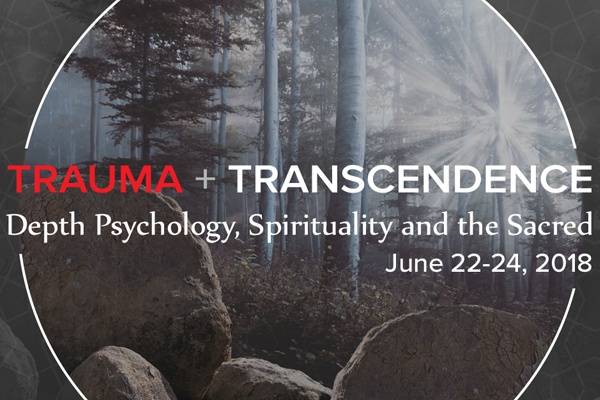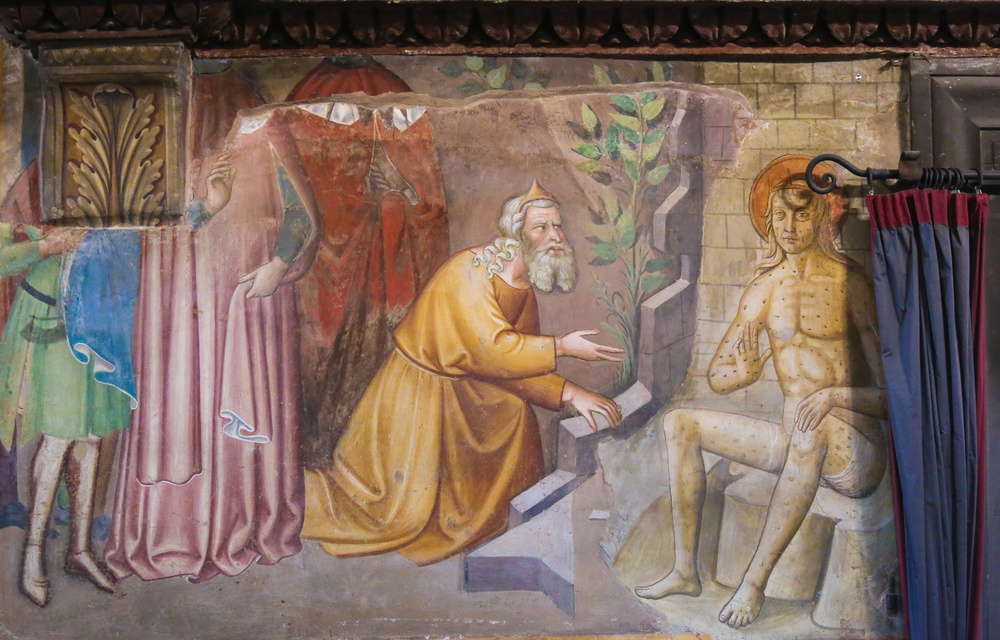A blog post by Melissa Ruisz Nazario based on a webinar presented by Keiron Le Grice, Ph.D.
What is archetypal cosmology, and why might you want to study it? Check out the post Archetypal Cosmology, Part I: Beyond Outer and Inner Space for a more in-depth description that gives background on the field.
To summarize, archetypal cosmology is a new discipline but rooted in the ancient practice of astrology. It is based on the idea that the celestial bodies like the solar system’s planets and the sun and their relative configurations reflect the deep order of the psyche—the psyche being the totality of psychological experience, according to C.G. Jung.
Read More
Posted in:
The Psyche,
James Hillman,
archetypes,
Psychology,
soul,
depth psychology,
psyche,
humanities,
Pacifica Graduate Institute,
sacred,
cosmology,
symbolism,
Spiritual
A blog post by Melissa Ruisz Nazario based on a webinar presented by Keiron Le Grice, Ph.D.
Astrology is the ancient practice of looking at the relative positions of celestial bodies and their relationship and influence on earth, the natural world, and humans. [1] Depth psychology has to do with psychologies and therapies involving “the exploration of the subtle, unconscious, and transpersonal aspects of human experience.” [2]
Read More
Posted in:
The Psyche,
James Hillman,
archetypes,
Psychology,
soul,
depth psychology,
psyche,
humanities,
Pacifica Graduate Institute,
sacred,
cosmology,
symbolism,
Spiritual
A blog post by Melissa Ruisz Nazario, based on interviews conducted by Bonnie Bright, Ph.D.
Ready to immerse yourself in some of the perspectives of trauma and transcendence being presented at Pacifica’s Trauma + Transcendence Conference June 22-24, 2018? We’ve rounded up our Pacifica Post blog posts and audio recordings of scholars and analysts presenting at the Conference who also recently spoke with Bonnie Bright, Ph.D., about their research.
Although registrations for attending the Trauma + Transcendence Conference in person have sold out, you can still gain access to the video livestream of the Conference’s Friday and Saturday events. Enjoy the Conference from the comfort of your home desktop computer or device by watching the livestream presentations in real time. You also have the option to earn continuing education credits by watching the livestream; please add the additional “Continuing Education Credit Fee” when you register. Details: https://retreat.pacifica.edu/trauma-transcendence/
Read More
Posted in:
Trauma,
Pacifica Events,
transformative,
C.G. Jung,
clinical psychology,
Psychology,
dreams,
psyche,
Spiritual
A blog post by Melissa Ruisz Nazario, based on an Interview with Ann Belford Ulanov, Ph.D., L.H.D., by Bonnie Bright, Ph.D.
Listen to the full audio interview with Ann Ulanov here. (approx. 31 minutes)
In the book The Unshuttered Heart: Opening Aliveness/Deadness in the Self, Jungian analyst Ann Belford Ulanov, Ph.D., L.H.D., says, “we can find our depth by being found in the depths.” But what does it mean, "to be found in depths"? For those of us who constantly seek to better understand ourselves and the world around us, or, as Joseph Campbell said, are "seeking an experience of being alive," what are some ways that we might find ourselves in these depths, to gain those profound insights that help us experience being alive? Ann, who is a prolific author and presenter at Pacifica’s upcoming sold-out Trauma and Transcendence conference in June 2018, says that one way we can find our depth in the depths is through our dreams. “You can’t make up the dream,” she says. “The dream makes up you. And some dreams you really get right away, and they tell you something you never knew before, and it’s as if you’re being addressed.”
Read More
Posted in:
Trauma,
Pacifica Events,
transformative,
C.G. Jung,
clinical psychology,
Psychology,
dreams,
psyche,
Spiritual
Illness, Identity, and the Archetype of the Exile: Finding Meaning and Vitality through Depth Psychotherapy-An Interview with Dr. Brad Chabin. A Guest Blog Post by Bonnie Bright, Ph.D.
Listen to the full audio interview with Brad Chabin here (approx. 29 mins)
C. G. Jung viewed mid-life, the time midway between entering adulthood and the end of life, as a critical time of transition. Having focused primarily on priorities like career and family, people can be left with a sense that they are missing some fundamental meaning in their lives, a promise which might be revealed in the second half of life.[1] Dr. Brad Chabin, a depth psychotherapist with a practice in West Hollywood, California, had his own experience of a spontaneous and powerful mid-life transition.
Read More
Posted in:
Counseling Psychology,
Alumni,
clinical psychology,
soul,
depth psychology,
imaginal,
psyche,
Pacifica Students
Psyche and the Sacred: An Interview with Dr. Lionel Corbett. A guest post by Bonnie Bright, Ph.D.
"You can't define the sacred," insists Pacifica professor and author, Dr. Lionel Corbett. "We can only talk about how we experience it. When C. G . Jung contemplated the sacred, he used the criteria of German theologian, Rudolf Otto, who described the experience of the sacred or the holy as “numinous”—that is, something that is mysterious, tremendous, or fascinating, having a powerful emotional quality beyond the ordinary or the everyday ego."
Corbett, a Jungian analyst who also trained in medicine and psychiatry, offers some stories from Biblical myth that exemplify such qualities of this experience. Rather than attributing such transformational events to the Judeo-Christian God, Corbett attributes them to what Jung calls the “objective psyche” or the “autonomous psyche.”
Read More
Posted in:
The Psyche,
C.G. Jung,
psyche,
mythological,
sacred
A guest post by Alanna Kaivalya, Ph.D.
Dr. Kaivalya will be presenting at the July Retreat Center Program Yoga Meets Psyche
Yoga is often praised for its far-reaching effects on nearly every aspect of the human being. The physical practices create health in the body. Breathing practices can alleviate stress and anxiety. Devotional practices inspire community and meditative practices can help to calm the mind. It sure seems like a one-stop-shop for all things awesome. But, years ago, I discovered a glitch in the system.
Read More
Posted in:
Joseph Campbell,
Pacifica Events,
Mythology,
soul,
depth psychology,
psyche,
meditation
“The question of vocation is crucial, and choosing the right one requires listening to the voice within. The root of the word “vocation” is Latin for voice. Learning to trust that inner voice in the face of economic and social pressures that might urge otherwise is an act of courage. Accessing that courage is key to finding the voice” ~ Dr. Joseph Cambray, Provost
Many of us actively seek to connect with our inner voice and calling, in guiding us on our life’s journey. Determining a graduate program that brings meaning and embraces our calling takes time, research, and a dedication to our self and making a difference. Whether seeking to enhance an existing career, beginning a new vocation, or striving for personal transformation and development, Pacifica’s graduate degree programs will further you on the path. By following the institute’s motto
“animae mundi colendae gratia”, which in Latin means “for the sake of tending the soul in and of the world”, Pacifica’s students become pioneers in the field of depth psychology through the lens of the various specializations and interdisciplinary curriculum that each program provides.
Read More
Posted in:
vocation,
soul,
psyche











